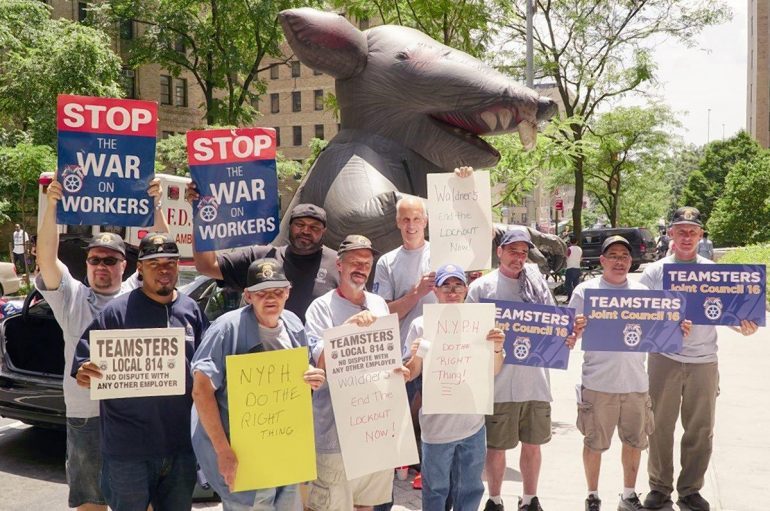In one of the nation’s last remaining union strongholds, the Teamsters lost two battles in New York this week that may wider ramifications.

Although the total number of workers affected may be small—less than 60 combined—the loss of two labor disputes in what has been considered one of the unions’ last major strongholds may have some significant ramifications on the labor movement as a whole.
In early July, deciding to subcontract all of its delivery services to companies closer to customers in New York City, Long Island-based Waldner’s Business Environments laid off its Farmingdale warehouse employees.
The union called the move a lock out and
The group of 20 full-time and 20 part-time employees had been members of the Teamsters Local 814 for more than 50 years, according to the New York Daily News.
“It’s all about getting out of the Teamsters pension,” stated Jason Ide, president of Local 814, during the dispute.
While the union filed charges claiming the lockout was unlawful, as well as picketed and protested Waldner’s, the company moved on.
In April, Teamsters Local 807 called a strike in Bethpage, New York against Ohio-based Alside Aluminum Supply.
Like, Waldner’s, the labor dispute at Alside involved the union’s pension.
Both labor disputes came to an end earlier this week, according to Newsday.
At Waldner’s, the union agreed to the company outsourcing the work to other unionized companies, which allowed Waldner’s to escape the union’s pension.
The [Alside] strike, over proposed changes to health care coverage and the removal of a pension plan, ended after the workers found jobs at other companies employing Teamsters. Alex Moore, a spokesman for Teamsters Joint Council 16, said the strike was “unsuccessful.”
Union members had filed charges against Alside, an Ohio-based manufacturer of vinyl siding, windows and patio doors, with the National Labor Relations Board. The agency ruled against the workers, Moore said.
As more and more union pensions begin to fail, like a domino effect, more and more companies may seek to leave their respective union pension plans which, in turn, places greater financial burden on those employers who remain.
While unions are loathe to lose employers that contribute to multi-employer pensions, under the pensions’ last-man standing rule remaining in an under funded plan becomes a noose around the surviving employers’ necks.
Under this rule, every company in the pension plan is responsible for all pension liabilities of every other firm in the plan. Thus, firms that go out of business leave their liabilities behind for those still left in the plan.
In New York, where unions remain among the strongest in the nation, the failure of the Teamsters to win these two labor disputes is a clear signal that, if it can happen in New York, it can happen anywhere.
Related:
- 1.3 Million Union Members Likely To See Their Pensions Fail Within Next 20 Years
- N.Y. retirees struggle to survive after pension fund bottoms out





